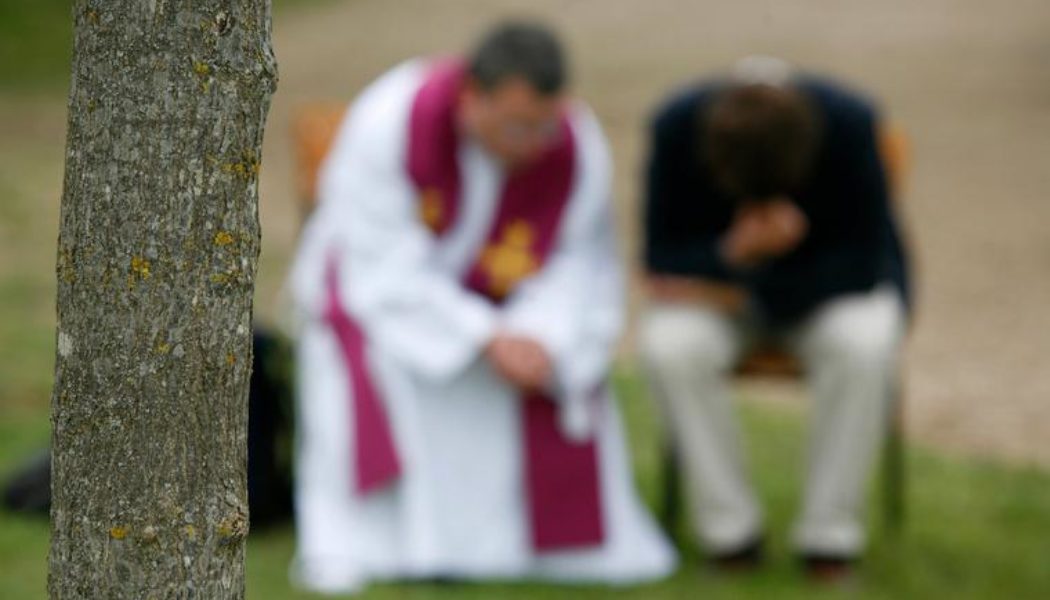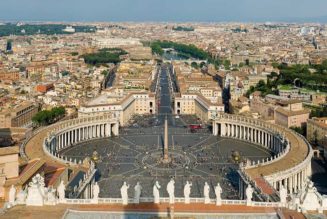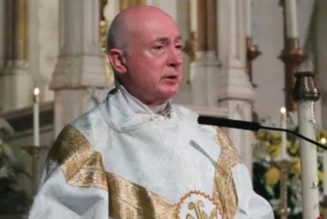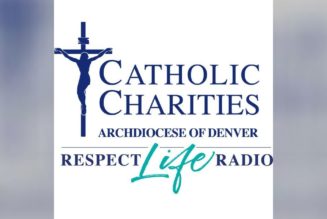
The Holy Eucharist is indeed a ‘healing remedy’ for those in the state of grace — but for anyone conscious of mortal sin, divine mercy must first be sought in the confessional.
Archbishop Michael Jackels recently weighed in on the subject of denying Communion to public sinners. Jackels, the archbishop of Dubuque, wrote that the desire to “repair the scandal of pro-choice Catholic politicians by refusing them the Eucharist” is a “misguided response.”
In his letter, Archbishop Jackels makes no reference to Canon 915 in the Code of Canon Law, which states that those who are “obstinately persevering in manifest grave sin are not to be admitted to holy communion.”
In this debate, many have cited Canon 915, and with good reason. But there is a prior point to be made here. It concerns a fundamental matter of sacramental theology, and it goes well beyond any discussion of various public figures. Rather, it applies to each one of us.
In his recent letter, Archbishop Jackels writes, “As Jesus said, it’s the sick people who need a doctor, not the healthy, and he gave us the Eucharist as a healing remedy; don’t deny the people who need the medicine.”
This statement desperately needs some clarification: If someone receives Communion in the state of sanctifying grace, his venial sins are forgiven. In his case, the Eucharist is “a healing remedy.” But if someone receives Communion in the conscious state of mortal sin, his sins are not forgiven. Moreover, such recipient commits an objectively grave sin of sacrilege.
Supported by Scripture, Tradition and the Magisterium, this is official and irreformable teaching. As 1 Corinthians 11:27 reads, “Whoever, therefore, eats the bread or drinks the cup of the Lord in an unworthy manner will be guilty of profaning the body and blood of the Lord.” As the Catechism states: “Anyone conscious of a grave sin must receive the sacrament of Reconciliation before coming to communion” (CCC 1385).
To Archbishop Jackels’ point, the Eucharist can be “a healing remedy” — however, the Eucharist is not a healing remedy to those outside sanctifying grace. In fact, St. informs the Corinthians (1 Corinthians 11:29-30) that they have become deathly ill because they received unworthily. The problem is not with the Eucharist; the problem lies with one who insistently receives the Eucharist in mortal sin.
Truly, Christ is the Physician of bodies and souls. He can heal whatever ails us. And that is why he gave us the sacrament of Reconciliation — that we may reconcile with Christ before we approach him. For if the Eucharist forgave both mortal and venial sins, there would be no need for the sacrament of Reconciliation.
Today, there is much chatter about Catholics “weaponizing the Eucharist” against obstinate public sinners. But the Catholic who insists upon unworthy reception is weaponizing the Eucharist against himself.
One last point. Some Catholics reading this may have received the Eucharist unworthily. Some Catholics may be wondering: With all this discussion of mortal sin and sacrilege, where does that leave me?
Here’s the answer: It leaves you where many have gone before you and many will come after you: in need of Confession. But please be assured: priests have heard this sin confessed many times before. Maybe you’ve received Communion unworthily once, twice, 5,000 times before.
Can God forgive all that? Yes!
Not only can God forgive you — he is eager to forgive you!
But I must be the worst sinner, you answer. Well, there’s only one worst, so it’s probably not you. But just in case it is, that means that you have the most right to the mercy of God in Confession. Maybe your mortal sins are as numerous as the grains of sand in Florida. But look past that sand, because just beyond all those tiny grains flows an ocean of mercy. And you will start to see that ocean when the priest pronounces these breathtaking words of sacramental forgiveness:
God, the Father of mercies,
through the death and the resurrection of his Son
has reconciled the world to himself
and sent the Holy Spirit among us
for the forgiveness of sins;
through the ministry of the Church
may God give you pardon and peace,
and I absolve you from your sins
in the name of the Father, and of the Son and of the Holy Spirit.
Join Our Telegram Group : Salvation & Prosperity









